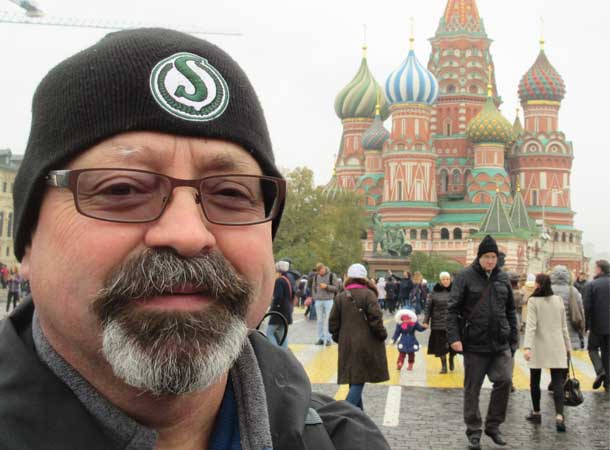This month The Professional Edge chats with Rick Agrey, P.Eng., an electrical engineer working with SED Systems in Saskatoon.
Tell us about your personal and professional background.
I was raised on a farm near the little town of Parkside. I attended elementary school there and went to high school in Shellbroook. After high school, I went to the University of Saskatchewan and obtained an education degree. I taught science, math and phys.ed. in high school for six years until I went back to get my engineering degree in 1986.
What inspired you to go back?
I was always interested in electronics. My uncle, an old Second World War veteran, enjoyed repairing old tube radios. I enjoyed visiting his place to watch him work and that translated into a lifelong hobby. I started with tinkering with small pieces of electronics at home. As the hobby started to consume more and more of my time, I decided to do it full-time instead of in parallel with the rest of my life. So my wife and I packed up and moved back to Saskatoon.
How did your wife feel about it?
She was very supportive. She continued working. We started a family after graduation so kids grew up knowing Saskatoon as our home.
What was your biggest challenge in college?
I didn’t really have any – at least not the second time. One of the things that high school students struggle with is getting a grasp on the math and science needed in engineering classes. I had been teaching that for six years so I was very comfortable with that. We were also fortunate financially because not only was my wife continuing to bring in an income but I also managed to get good summer jobs in the industry.
What was your first job after college?
This one – or this place anyway. SED hired me the spring I was to graduate and I’ve worked here ever since.
What do you do there?
I’ve done a wide range of things, primarily in the satellite communication industry. I have mainly worked on designing and building ground stations and uplink stations. I also oversee the creation of software for satellite usage planning.
What do you feel was your single greatest accomplishment as an engineer?
We’ve done the complete ground system work for Sirius XM satellite radio. From their studios, they plug an audio wire into the equipment we provided that sends their signals up to the satellites that then sends signals to cars and radios all over North America. It is demanding work because they are continually looking for upgrades to their software to provide a better experience for radio listeners.
What are your interests outside of work?
Sports – fastball and soccer mainly. My wife and I are Rider fans so we go to as many games as possible. We also have season tickets to the Saskatoon Rush lacrosse team.
Do you do any volunteer work?
I’m a type 1 diabetic so I volunteer for Diabetes Canada for their fundraising drives whenever I can.
What is your favourite vacation spot?
On the job, I get to travel quite a bit around the world. Most of SED’s work is outside of Canada and North America. Out of the places I’ve visited through work, my favourite is Australia – mainly because it’s so much like Canada!
Outside of work, my wife and I enjoy travelling to folk music festivals across Western Canada. Among those, the Winnipeg Folk Festival is the one that stands out in my mind.
What book you are reading now?
The genre I enjoy is fantasy and I’m currently reading Sage of Shadowdale by Ed Greenwood. He’s one of the original inventors of the Dungeons and Dragons role-playing game so he has an in-depth knowledge of the lore of fantasy worlds.
If you could have any super-power, what would it be and why?
I suppose, like any good engineer, I would wish for super-intellect so that I could solve problems instantly.
Who has had the greatest influence on your life and career?
In university, I had a couple of great professors, Jerry Huff and Roy Ludwig. They were influential on paths that I took in my career. They were pretty laid back. They allowed their students to delve into solving problems on their own. They didn’t solve the problem for you, just stepped in to help if you needed it.
For my life in general, of course I would say my parents. Neither of them had finished high school. My dad farmed a small farm. They placed a high value on education and insisted that all their kids complete high school and go on to post-secondary.
And I also need to recognize the tremendous influence of my wife for her support when I went back to school.
